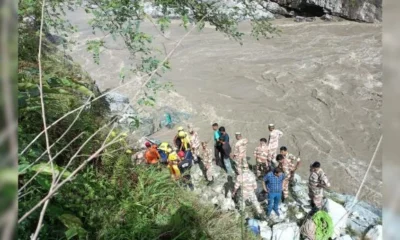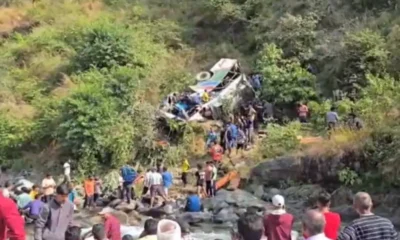India News
Uttarkashi bus accident: Death toll rises to 26, 4 critically injured after bus carrying pilgrims from Madhya Pradesh falls into deep gorge
The bus on which they were travelling was on the way to Yamunotri temple in Uttarkashi district, Uttarakhand.

India News
Tamil Nadu potboiler: Now, Sasikala to launch new party ahead of election
Sasikala has announced the launch of a new political party ahead of the Tamil Nadu Assembly elections, positioning herself against AIADMK chief Edappadi K Palaniswami.
India News
As stealth reshapes air combat, India weighs induction of Sukhoi Su-57 jets
India is assessing the possible induction of up to 40 Sukhoi Su-57 fifth-generation fighter jets as stealth becomes central to future air combat strategy.
India News
RSS chief backs nationwide rollout of Uniform Civil Code, cites Uttarakhand model
RSS chief Mohan Bhagwat has supported nationwide implementation of the Uniform Civil Code, urging adoption of the Uttarakhand model.
-

 India News12 hours ago
India News12 hours agoDMK leader’s son arrested after car rams family in Krishnagiri, one dead
-

 India News11 hours ago
India News11 hours agoRSS chief backs nationwide rollout of Uniform Civil Code, cites Uttarakhand model
-

 India News2 hours ago
India News2 hours agoAs stealth reshapes air combat, India weighs induction of Sukhoi Su-57 jets
-

 Cricket news1 hour ago
Cricket news1 hour agoRinku Singh returns home from T20 World Cup camp due to family emergency
-

 India News25 mins ago
India News25 mins agoTamil Nadu potboiler: Now, Sasikala to launch new party ahead of election









